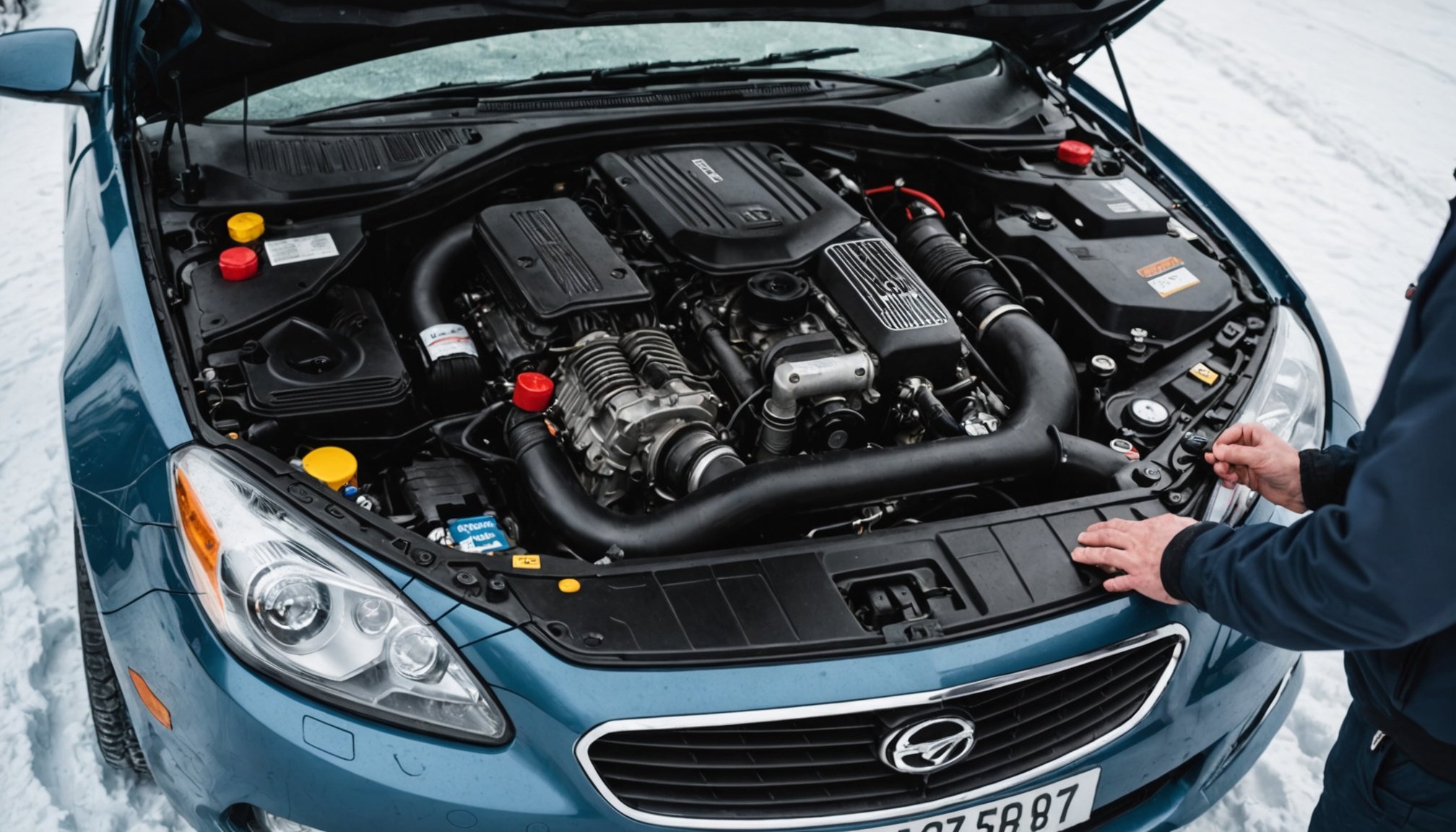The cold winter months can be a challenging time for any vehicle owner. As the mercury plunges in the UK, the freezing weather can present numerous challenges including ice on the roads, snowfall and even sub-zero temperatures. These brutal conditions can wreak havoc on your car, particularly the engine. As such, it is essential to keep your car in top-notch shape during these chilly months. This article will guide you on how to maintain your car’s engine during these cold UK winters. We will discuss practical tips and accurate information to help you ensure your vehicle remains in excellent condition throughout the winter season.
Checking and Changing Your Car’s Oil
The engine is the heart of your vehicle. Just like a human heart, it needs to be well-lubricated to function effectively. The cold weather can affect the viscosity of your engine oil, making it thicker and possibly impeding smooth engine operation.
Additional reading : Mastering Road Rage: Effective Strategies for Handling Aggressive Driving on UK Roads
Before the winter season fully sets in, make it a habit to check your car’s oil level regularly. You might notice that the oil turns sludgy in cold weather, which is a clear indication that it is time for an oil change. Remember to use the right grade of oil suitable for the cold weather, as recommended by your vehicle manufacturer.
Keeping your engine oil at the appropriate level helps to ensure your engine is well lubricated and therefore reduces the friction that can cause wear and tear. Also, consider synthetic oils, as they are designed to function optimally even in extremely cold conditions.
Topic to read : What are the guidelines for using electric scooters in the UK?
Monitor Tyre Pressure and Condition
Tyres are an integral part of your car, and their condition can significantly affect your driving experience in the winter months. Low temperatures cause tyres to lose pressure faster than in the warmer months, which can lead to poor vehicle handling and increased fuel consumption.
Regularly check your tyres for any signs of wear and tear and ensure they are inflated to the manufacturer’s recommended pressure. Also, consider investing in winter tyres or all-season tyres. These types of tyres have special treads designed to provide better traction in snow, slush, and ice, reducing the risk of skidding and accidents.
Keeping the Vehicle Battery in Check
Car batteries struggle in the cold. The low temps can slow chemical reactions inside the battery, making it harder for it to deliver the necessary power to start your engine. In fact, at just 0°C, a car battery can lose about 35% of its effectiveness.
Regularly check your car battery’s health, especially as winter approaches. Clean any corrosion build-up on battery terminals and make sure all connections are tight and secure. If your battery is old or showing signs of weakness, consider replacing it before the onset of winter.
Fuel and Engine Coolant Levels
Cold winter temperatures can cause your vehicle to use more fuel. Thus, it’s a good practice to keep your fuel tank at least half full during the winter months to prevent any fuel line freeze-ups.
Similarly, maintaining an appropriate level of engine coolant is crucial. During winter, engine coolant prevents the water in your car’s radiator from freezing, which could otherwise cause severe damage to your engine. Use a 50/50 mix of coolant to water to ensure maximum protection against freezing.
Regular Car Checks and Maintenance
Just like you would bundle up to brave the chill of December or January, your car also needs some extra care to survive the winter. Regular checks by a professional mechanic can help identify any potential issues before they escalate into costly repairs. Be proactive and schedule regular check-ups for your vehicle, particularly before the onset of winter.
In conclusion, winter can be unkind to your vehicle, particularly the engine. However, by taking these necessary steps, you can ensure your car stays in excellent condition throughout the cold season, keeping you safe on the road. Remember, prevention is better than cure, and a little maintenance goes a long way in preserving your car’s health and longevity.
Maintaining Your Wiper Blades and Windscreen
Winter can be harsh on wiper blades and your windscreen. The salt used on the roads during winter can stick to your windscreen and cause smudges that hinder your view. Always clean your windscreen thoroughly before you start driving.
Wiper blades also have to work harder during the winter months due to increased rain, snow, and slush, leading to faster wear and tear. Regularly inspect your wiper blades for any signs of damage or wear. If they are leaving streaks or not clearing the windscreen properly, it’s time to replace them.
It’s also a good idea to have a windscreen washer fluid that includes an antifreeze agent. This will ensure a clear view and prevent the fluid from freezing in the reservoir or on your windscreen.
Breakdown Cover and Traffic News
Being stranded on the roadside due to a vehicle breakdown can be a nightmare, especially during the winter. A good breakdown cover can offer peace of mind. It typically includes roadside assistance and recovery to a garage if the issue can’t be resolved on the spot.
Also, make sure to keep abreast of traffic news. Winter weather can lead to road closures and delays. Keep an eye on traffic news to avoid getting stuck in a long queue in the freezing cold.
Conclusion
Winter can be tough on your car. However, with a little preparation and proactive maintenance, your vehicle can handle the cold weather effectively. Regularly check your car’s vital components, keeping an eye on your battery, engine oil, and your tyres. Investing in winter car maintenance can go a long way in preventing breakdowns and ensuring safe winter driving.
Remember to keep your windscreen clean for better visibility, and replace your wiper blades if necessary. Consider investing in a good breakdown cover for added peace of mind, and stay updated with traffic news to avoid any potential delays or hazards on the road.
With these measures, you can preserve your engine and keep your car running smoothly, ensuring you’re prepared to face the brunt of the UK winter. So, brave the cold, start cold mornings with a well-maintained car, and drive safe. After all, a stitch in time saves nine, and during winter, this could be the difference between a pleasant drive and a roadside breakdown.











